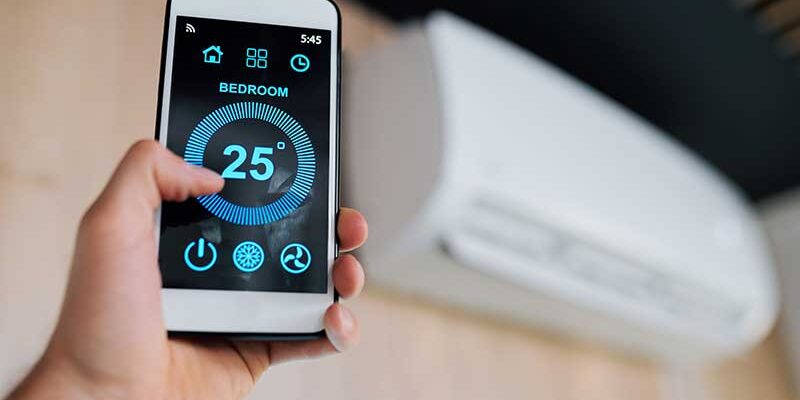The subject of air conditioning, like the rest of technology, is always evolving. Air conditioners are no longer just a luxury item. Today, they are a necessity, ensuring comfort in both homes and workplaces. However, with the pressing issue of climate change and the need for energy efficiency, modern air conditioning technology is rapidly changing, providing solutions that are not only cooler, but also greener and more intelligent. This blog digs into the most recent technological developments in air conditioning, emphasizing how they will pave the way for a more sustainable and comfortable future.
1. Smart Thermostats: The Brain of Efficient Cooling
The incorporation of smart thermostats into air conditioning systems represents a significant advancement in energy efficiency and user convenience. These gadgets learn from your behaviors and adjust the cooling to your presence, assuring comfort while reducing energy waste. With features such as Wi-Fi connectivity, they provide remote management via smartphones, allowing consumers to adjust their indoor climate even when they are away. This not only results in lower energy consumption but also provides unmatched control and comfort.
2. Inverter Technology is Revolutionizing Energy Efficiency
Inverter technology has altered how air conditioners regulate temperature. Unlike typical units that run at a steady pace, inverter-equipped air conditioners may vary the speed of their compressor to better regulate temperature. This not only assures a continuously comfortable environment, but also considerably decreases energy consumption because the units only use the power required to maintain the appropriate temperature.
3. Environmentally Friendly Refrigerants: A Step Toward a Greener Planet
The shift to eco-friendly refrigerants is in response to traditional refrigerants’ harmful impact on the ozone layer and global warming. Modern air conditioners are increasingly using refrigerants with a low Global Warming Potential (GWP), such as R-32 and R-290. These solutions not only reduce environmental effect but also enhance energy efficiency, which aligns with global efforts to address climate change.
4. Advanced Materials and Design: Improving Performance and Sustainability
The utilization of sophisticated materials and inventive design in air conditioners is pushing the envelope of performance and sustainability. Manufacturers are using materials that improve heat exchange efficiency while reducing weight, resulting in more compact and energy-efficient systems. Furthermore, designs that promote improved airflow and heat dispersion improve the system’s overall efficiency, delivering maximum comfort with little energy use.
5. Integration with Home Automation System: The Future of Connected Living
Air conditioners are increasingly being linked into home automation systems. This connection enables a more holistic approach to regulating indoor conditions, with air conditioning equipment working in tandem with other smart home devices like blinds, lights, and ventilation systems. This not only optimizes energy use, but also ensures that the indoor climate responds to the needs of the occupants, providing a smooth and intuitive living environment.
Technological advancements in air conditioning demonstrate the industry’s commitment to innovation, efficiency, and sustainability. From smart thermostats and inverter technology to eco-friendly refrigerants and innovative materials, these advancements are not only changing the way we cool our homes, but also contributing to a more sustainable and comfortable future. As we continue to see significant improvements in this industry, it is apparent that future air conditioning systems will be smarter, greener, and more efficient than ever before.




